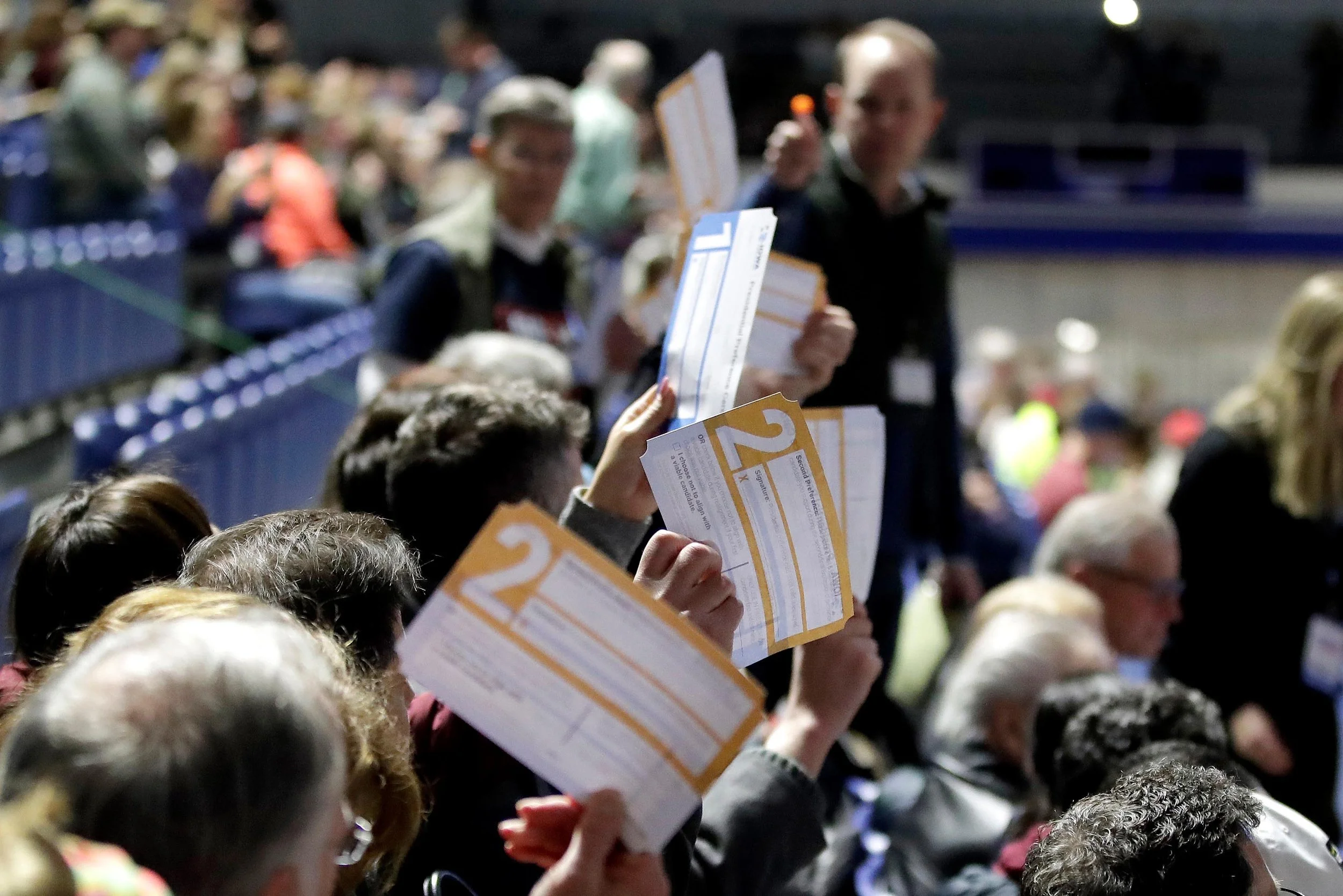How to “Rig” the Republican Nomination
by Foster Harris '24
September 8, 2023
If you’re reading the news, you are probably seeing the latest Trump roast, Christie jab, DeSantis moment, or Nikki Haley momentum driver. You might have even caught our coverage of events featuring the candidates like the first Republican Presidential Primary Debate and the Iowa GOP Lincoln Dinner.
But here’s what you probably aren’t seeing. Right now, the race is being altered, designed, and structured to benefit some candidates more than others through the state party run process known as the delegate allocation and primary rules process.
Haven’t heard of it? Not surprised. Media rarely covers this until after the fact, and it is commonly called out for what it is: the inside baseball of primary politics. Some campaigns will call it playing the game, and others will call it “rigging” the election. Here’s what you need to know.
Delegate Allocation and Election Rules
How do you win the Republican nomination for president? It isn’t by winning the most votes, it is by winning the most delegates through state elections. Each state is awarded a different number of delegates by the Republican National Committee (RNC), and how those delegates are awarded to the candidates and how those state elections work shape the race and benefit some campaigns over others.
In the Republican Party, the rules, dates, and election type of each state primary are determined by the state Republican Party. So, unlike the Democrats, each state runs their primary/caucus a little bit differently. These rules have a hard deadline, too: October 1, 2023.
Election rules can roughly be split up into three main areas: election type, election date, and, the most important, delegate allocation rules.
Election Type: This one determines how the election is run in your state. The basic gist is this: does your state run a primary (think New Hampshire), a caucus (think Iowa), or a hybrid system (think Michigan GOP’s current proposal).
What to look for: if your state might change their election type or if your state is considering a hybrid election, that is a really important piece of information! Michigan’s hybrid proposal, for example, creates a system that likely benefits President Donald Trump, while the Trump campaign might oppose Nevada switching from a caucus to a primary.
Election Date: This one is super easy to understand. Each state party, in accordance with national RNC rules and state law, sets the date of their primary election.
What to look for: the calendar controls momentum. So South Carolina’s decision to have a later-than-expected date (compared to 2016) has an impact. And, each cycle, some states try to jump ahead in the state voting order. This can make that state carry additional weight, or it can make them incur national RNC penalties and carry none. For example, if a state tries to go before Iowa, the national RNC can refuse to let that state’s primary award any delegates, making that state’s primary absolutely pointless.
Delegate Allocation Rules: This is the big kahuna. This dictates the field of play. And, of course, this is where it gets complicated! Delegate allocation rules are how delegates are awarded based on state primary election results. This is broken down in a few ways.
Winner Take All vs. Proportional: In a winner take all contest, whoever receives the most votes wins all of that state’s delegates. In a proportional contest, things get complicated, mostly because few states run proportional elections in the exact same way. Most states using a proportional system set a threshold for candidates to receive any delegates at all, and that threshold is incredibly important. For example, if a state runs an election with proportional delegate allocation and a 20 percent threshold, a candidate must receive 20 percent or more of the state’s vote to receive any delegates at all. So, a higher threshold benefits a clear frontrunner like President Trump. A low threshold helps everyone else.
Some states have rules that split up delegate allocation into a proportional by congressional district system.
Bound vs. Unbound: This is a much simpler concept. Bound delegates are mandated to vote for the candidate they are allocated to at the Republican National Convention through a determined number of voting rounds (where the nomination becomes official). Unbound delegates are not, although, so as to not appear like they are rejecting the will of the people, they normally vote for whoever won their state election.
Bound delegates can also be bound permanently to a candidate or, significantly, through a specified number of voting rounds at the Republican National Convention. So if there is no nominee after, say, two rounds of voting, delegates bound for two rounds can then vote for whoever they want on the third ballot. In a close election contested convention, this is paramount.
Self-Nominated vs. Campaign Chosen Delegates: Most states allow each campaign to pick the specific people who serve as their delegates at the Republican National Convention. So if I win a winner take all state with 20 delegates up for grabs, I get to pick 20 loyal people to serve as my delegates. However, in some states, like Colorado infamously did in 2016 (and is not doing in 2024), delegates are self-nominated. Self-nominated delegates occur when the state GOP picks who the delegates are rather than the campaigns. Note the difference? This means that a candidate can have a delegate at the Republican National Convention who is not loyal and could vote for another candidate at the Convention once unbound.
This process is tricky and requires some serious campaign calculus to determine which rules benefit each campaign. However, Mock Convention 2024 has this process covered. Our constant analysis, rule monitoring, and boots on the ground outreach mean that we are up to date with state plans and campaign strategies. That’s part of why we are confident that we have a leading edge in predicting who the Republican presidential nominee will be in the race to 2024.

